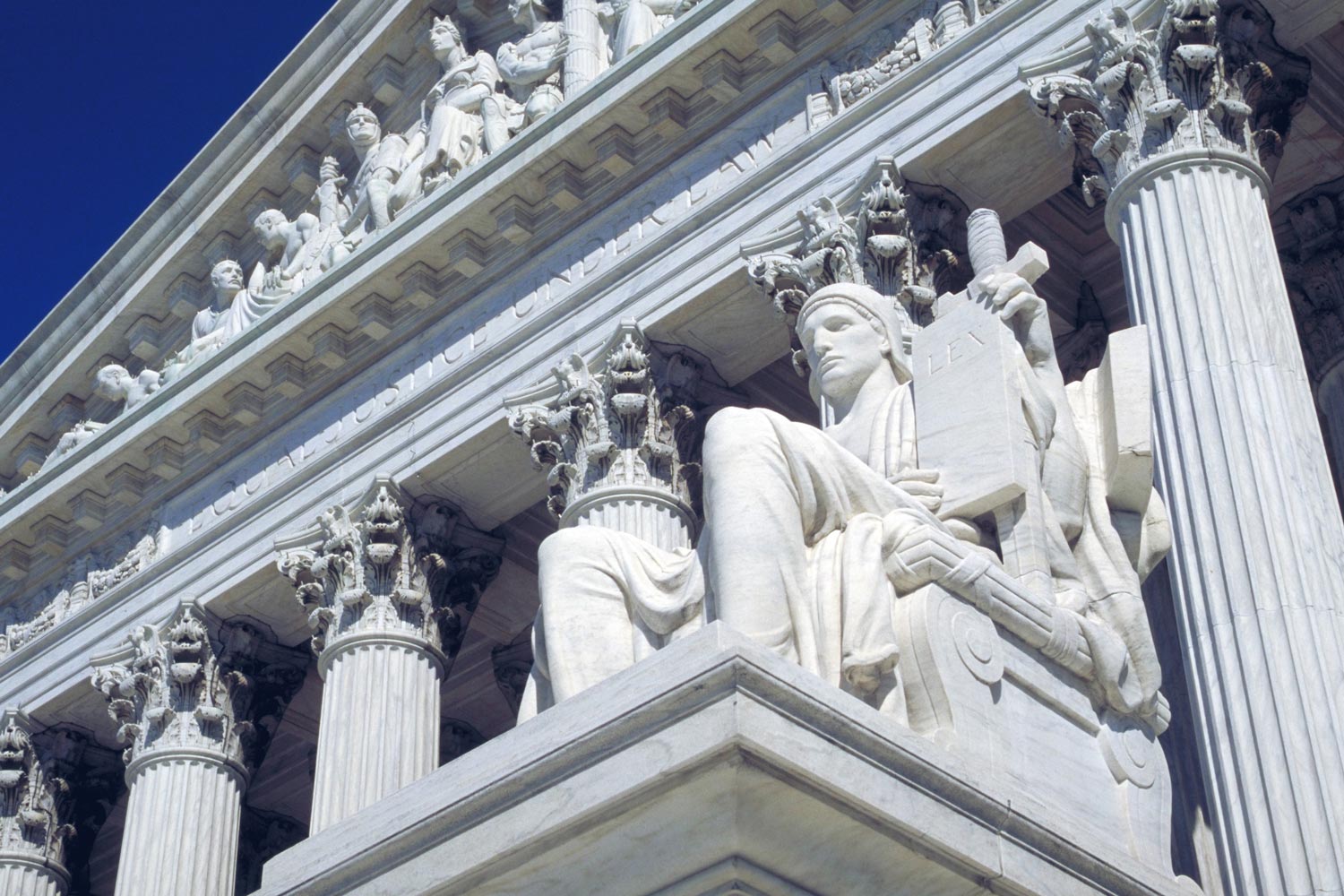The next Supreme Court term could see “bolts of thunder and lightning,” compared to “an uncommonly quiet” term last year due to the lack of a ninth justice, said A.E. Dick Howard, a University of Virginia School of Law professor.
Howard and other UVA law faculty members will discuss the last term and look ahead to the next at the annual Supreme Court Roundup on Wednesday at 5 p.m. in the Law School’s Caplin Pavilion. The event comes just before Constitution Day on Sunday.
After an overview by Howard, professors Barbara Armacost, Michael Gilbert and Micah Schwartzman will offer commentary.
More than 400 days passed before the vacancy caused by Justice Antonin Scalia’s death in February 2016 was filled by Neil Gorsuch, and the court put off many big issues until the next term, Howard said.
“The big news of the 2016-17 term was not the decisions the court handed down, but the remarkable debut of the newest justice, Neil Gorsuch,” Howard said. “He participated in only two weeks of oral argument, but he is already proving that he intends to be an assertive and vocal member of the court. Aligning himself with Justices Thomas and Alito, the court’s most conservative members, Gorsuch made it clear that he seeks to move the court to the right in such controversial areas as church and state, gun rights, same-sex marriage and campaign finance.”
Starting in October, the court will be hearing cases regarding President Donald Trump’s travel ban, partisan gerrymandering, a clash between gay rights and claims of religious liberty, and cell phone privacy.

“Once again, the court will be stage center,” Howard said.
Looking at the last term, Armacost will discuss the court’s decision in Trinity Lutheran Church of Columbia v. Comer, in which the court ruled that a church’s First Amendment rights were violated when the Missouri Department of Natural Resources denied the church a grant to have its playground resurfaced. The benefit had been available to other non-religious institutions.
Gilbert will discuss partisan gerrymandering, focusing on the Wisconsin case set for argument in the coming term, Gill v. Whitford.
Schwartzman will talk about the travel ban cases, both what was decided this past term and what lies ahead. Opponents of the ban have challenged the president’s order, which froze new visas from six Muslim-majority countries, arguing that the order violates the Constitution because it intended to discriminate against Muslim travelers, and that the order exceeds the president’s power. Schwartzman has led amicus briefs in the case in the Fourth and Ninth circuits and at the Supreme Court.
On the Docket
The first case to be heard at the Supreme Court this term will be Epic Systems Inc. v. Lewis, a UVA Law Supreme Court Litigation Clinic case that professor Dan Ortiz will argue if the court grants a motion for divided argument. The court, in granting the case, consolidated it with two other similar ones, Ernst & Young LLP v. Morris and National Labor Relations Board v. Murphy Oil USA Inc. Ortiz said Epic could have far-reaching implications for class actions, collective bargaining and an employee’s right to take his employer to court.
The clinic is representing Jacob Lewis, an employee of health care software company Epic Systems. Lewis was pursuing collective action against the company for overtime pay he says he and his co-workers were owed – this, despite having signed an arbitration agreement, per corporate policy, that denied him the right to pursue collective action. Lewis claims that being forced to proceed individually violates his rights under the National Labor Relations Act and is unenforceable under the Federal Arbitration Act.
Media Contact
Article Information
September 12, 2017
/content/after-quiet-year-supreme-court-will-heat-uva-law-professor-predicts

